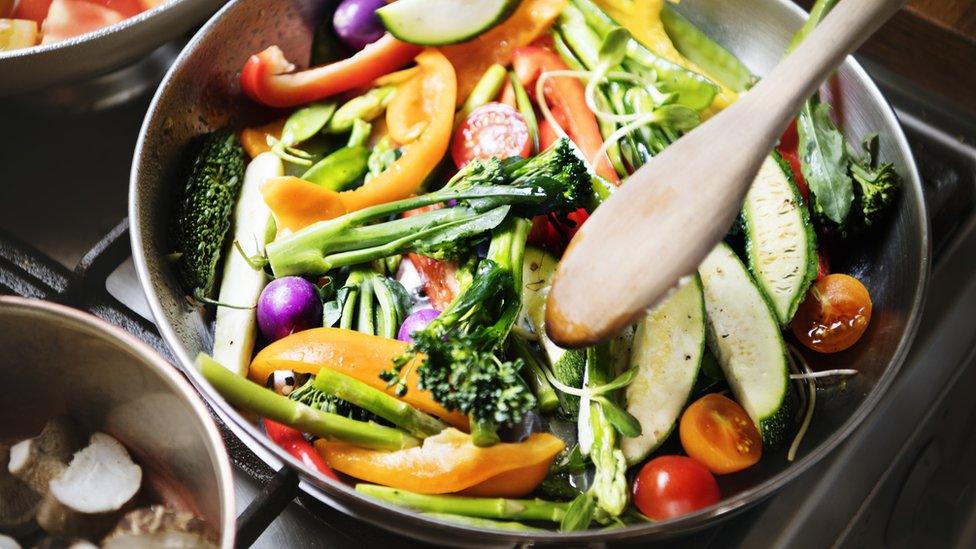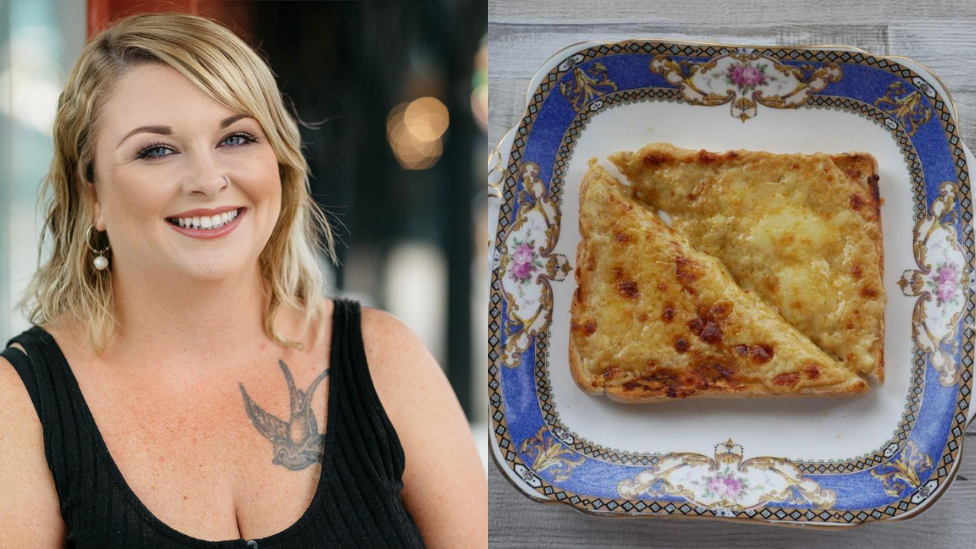Recipeasly: Food website removed after blogger backlash
- Published

A website that collates recipes from the internet has been taken down hours after it launched, following a backlash from food bloggers.
Recipeasly said it wanted to "fix online recipes" by removing "ads and life stories" when users imported external links.
But content creators criticised the platform for breaching copyright and accused it of "stealing" revenue.
The website was removed after a deluge of complaints on social media.
“We're sorry,” a message on the homepage reads.
Allow X content?
This article contains content provided by X. We ask for your permission before anything is loaded, as they may be using cookies and other technologies. You may want to read X’s cookie policy, external and privacy policy, external before accepting. To view this content choose ‘accept and continue’.
"We have nothing but respect and admiration for the time, money and effort that go into creating great recipes & websites. We don't want to minimise the results for all that hard work.
"We realise we're not demonstrating the huge respect we have for recipe creators. We missed the mark big time today and we're sorry."
The website says its aim is to remove “ads, clutter and long pages of content (designed for the search engine rather than humans)”.
A lot of food blogs contain text before the recipe, often writing about a personal connection to the meal or the history behind it.
Many people responding to Recipeasly's launch on social media said it was a useful tool.
“Please don’t bow to the criticism, this site is an answer to my prayers,” one tweet said.
“We all hate shifting through lifestyle guru stuff to see if we need one egg or two,” another wrote.
However, food bloggers have complained that the stories accompanying recipes are relevant.

Binny Shah-Patel says she shares recipes that have a personal connection to her late grandmother
Binny Shah-Patel, food writer and creator of Binny's Food and Travel blog, said it took the “heart and soul” out of recipes.
“If I shared a recipe that was inspired by something my grandmother fondly made for me growing up in Kenya, it is now one of the ways I remember my grandmother now that she has passed away, and I can't even go home because of Covid.
“I would want others to know about the inspiration behind the recipe and what it means to me every time I make it and eat it, so that they too can appreciate it that much more and perhaps learn a little about my background and grandmother in the process.”
Critics said the website was taking advertising revenue away from predominately female creators.

Kacie Morgan says websites like Recipeasly could mean she loses money from her food blog
“As recipe development is one of the major services I offer, these platforms present a real threat to my income as they could be seen to undermine my work,” Kacie Morgan, food blogger at The Rare Welsh Bit, said.
Money made from advertising on her blog was largely dependent on the number of people visiting the site each month, she added.
“Ads help me have a job that I can work around my condition and being a mum,” Jenna Farmer, who blogs about her experience with Crohn's disease, said.
“They're a way of supporting a blogger whose recipes you love, without having to spend a penny on a recipe book in the traditional way."
Allow Instagram content?
This article contains content provided by Instagram. We ask for your permission before anything is loaded, as they may be using cookies and other technologies. You may want to read Meta’s Instagram cookie policy, external and privacy policy, external before accepting. To view this content choose ‘accept and continue’.
Tom Redman, one of the creators of the platform, emphasised that Recipeasly had no revenue or profit, and that it drove blog traffic through links on the platform.
Recipes on the website were only visible to the user who imported them, “similar to if a user had printed the recipe or copied it into a [document]”, he wrote in a series of posts on Twitter., external
“Given the feedback, we are taking recipeasly.com down as we re-examine our impact on the community,” he added.
Recipes scraped off a website and republished without consent could be a breach of copyright, Mark Blunden, head of technology at law firm Boyes Turner, said.
“If someone has created a recipe and put it into writing, then like any other literary work it will automatically attract copyright protection.
“Images are also the copyright of the creator, and reproducing them online without consent is a copyright infringement.
“However, if someone were to adapt an existing recipe and change it sufficiently, it will be a fresh copyright work and non-infringing."
He suggested creators could use watermarks or back up their text in a repository, to help protect their work.
The BBC has contacted Recipeasly for comment.
Related topics
- Published24 April 2020

- Published5 July 2018

- Published20 November 2020

- Published28 February 2021
